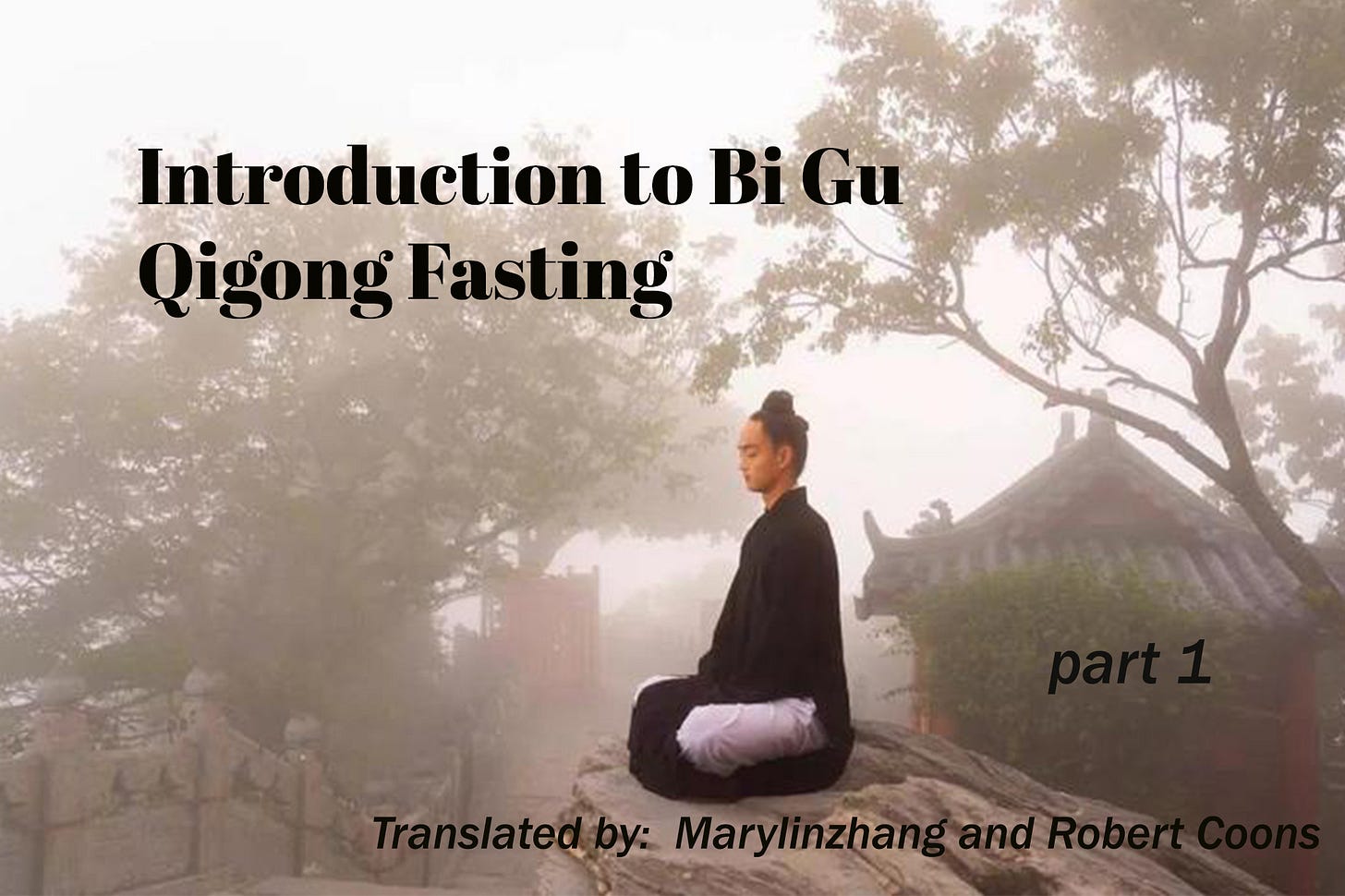Introduction to Bi Gu
Qigong Fasting
Bigu: the art of Qigong Fasting:
In 1963 at the Mawangdui excavation site in Changsha Henan a tomb of a Chinese aristocrat named the Marquess of Dai was discovered.
Ms.Dai lived 2000 years ago during the Han Dynasty, one of the greatest times of Chinese culture and scientific innovation.
The mummified remains of Marquess Dai showed that she was around 56 years of age when she died and because her body was so well preserved an autopsy could be performed showing she died of a heart attack,
Her diet was rich as sugars and meats and it is commonly believed she developed an arterial blockage which ultimately led to her demise.
Chinese people have known that too much of the wrong food is harmful for a long time and interestingly in the tomb of her husband was discovered two of the earliest Qigong documents, one titled “Dao Yin Illustration,” which was a chart of different stretching poses performed for health.
Another was titled “Stopping Grains and Eating Qi” and is the first evidence of a famous kind of Qigong Fasting called Bi Gu, or Stopping Grains.
Bigu is a technique which developed over thousands of years and is used not only in Chinese Daoism but every part of Qigong culture.
Bigu as a technique is different from regular fasting, since fasting does not involve eating any food while Bigu only requires us to stop eating certain foods for a limited period of time.
In this article I will introduce the basics of Bigu so you can know what it is, why it is important and some general principles of practice.
Since I can't be with you to teach you I will not teach the precise technique, but this article will give you enough information to perform an adaptation of Bigu designed according to the modern technique of intermittent fasting.
Just a couple things before we start:
Bigu should only be practiced by Qigong practitioners who have some experience cultivating internal energy,
Bigu should not be practiced by people with diabetes, digestive issues, mental health issues, low or high blood pressure, cancer, or other serious health problems. If you are unsure of the safety of practice make sure to talk to a medical professional before trying even mild fasting practices.
1: What is Bi Gu:
although Bi Gu literally means to stop eating grains it actually refers to a practice of not eating specific types of food which can cause digestion not to be smooth.
2: Why do we practice Bi Gu:
Bi Gu is practiced in order to clean the digestion by using some of the reserve of True Qi that we develop in Qigong practice.
Allowing the body to get rid of excess left over food products can detoxify our organs, lead to a reduction of organ fat, LDL (bad cholestoral), weight loss, anti-inflammatory response, and much more.
3: What we don't eat:
During Bi Gu we do not eat:
Keep reading with a 7-day free trial
Subscribe to Marylin Zhang Chinese Medicine Nutrition and WellBeing to keep reading this post and get 7 days of free access to the full post archives.

